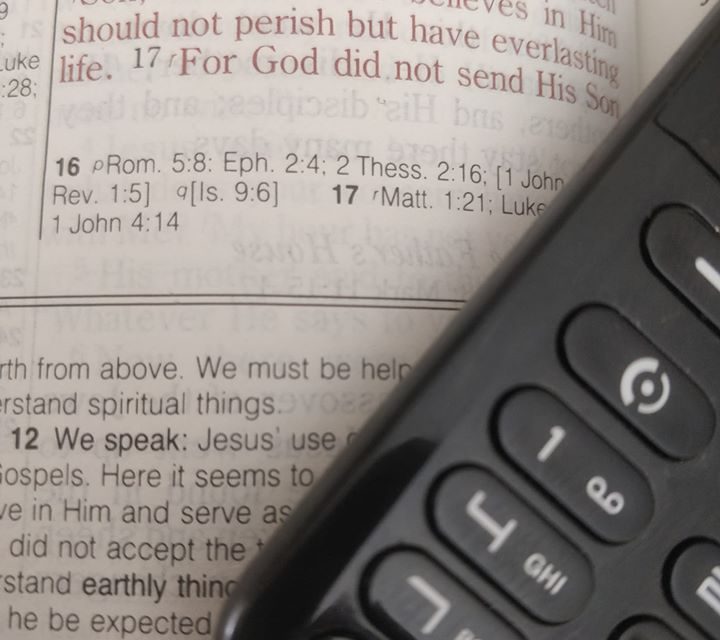The world is in a visually noisy age and pandemic, hence it is becoming difficult to see eternal things clearly. Josef Pieper (4 May 1904 – 6 November 1997), a 20th-century German Catholic philosopher explained that ‘the visual noise in our world makes it hard for us to see. Ironically, the visual glut of the digital age—70-inch television screens, Instagram photos and endless megapixels—is blinding us.’ It is increasingly becoming had for the church to see clearly and spiritually, hence we are reducing God and His holiness to our limited, impaired thoughts and ways (Ps 55:8). No wonder, where there is no vision or revelation from God, the people cast off restraint, no longer faithfully interpreting God’s Word and His Laws (Prov 29:18). The reflection is that our vision or revelation from God determines the state of our hearts.
On the hardness of the world to see, Pieper is not focusing on ‘the physiological sensitivity of the human eye.’ According to him,’we mean the spiritual capacity to perceive the visible reality as it truly is. We see more than we have ever before. And yet our capacity to see what is real, true and beautiful is occluded like never before.’ The world is becoming what we are beholding, courtesy of the ‘digitally impaired vision,’ especially in our digital world and our hearts remains unwarmed. In a world with plenty of blinding idols: sex, power, drugs, wealth, selfish individualism, pride and avarice, the dissemination of these gods of convenience and gratification through the social media is more of enslavement than freedom.
Since the global lockdown in response to curtail the spread of the COVID-19 pandemic, a global health crisis of frightening proportions, there has been upsurge in the usage of visual voices in broadcasting church services, pastoral follow-up and meetings. As a minister in a local church and chaplain to a national fellowship, my finding reveals that worship through the visual voices during the church lockdown is beyond eyes on screens. We are witnessing a larger part of communication during the pandemic through smart phones, emails, YouTube, and even life TV. Beyond the usage of these visual voices to organise events, fundraising campaigns and do online Bible studies, the COVID-19 pandemic has brought in another way of doing church and discipleship but with limitations. Rowan Williams, the former archbishop of Canterbury described the global lockdown as a “historic spiritual moment.” Williams’s description based on the growth in Bible-reading coupled with the booming online church services was quick to add ‘that it is a response to feelings of disorientation, fragility and fear caused by the crisis.’ In essence, the booming visual voices is becoming an adjustment to life of isolation, a means to an end. Christianity is more than video apps helping communities stay in touch.
The challenge remains that church worship or discipleship is not just eyes on screens, a dissemination of information about spiritual topics, services or events. Michael Frost in one of his works, Exiles: Living Missionally in a Post-Christian Culture explained that communicating the gospel is not easy. It is a spiritual engagement and reality empowered by the Holy Spirit. According to Frost, technology makes no distinction between appearance and reality, true and false, meaningful and meaningless. Using the words of David Lochhead in one of his works, Shifting Realities: Information Technology and the Church, the digital world has helped in enhancing information-data with wider dissemination of information. However, Albert Borgmann in his book, Power Failure: Christianity in the Culture of Technology explained that technology aids increase in information-data and dissemination through the visual voices for rising standard of living and pleasures while Christian faith declines.
Many are at home already in the digital world using the visual voices to explore their faith even before the global lockdown. A study by Barna Group provides us an interesting exploration of faith by a large proportion of Millennials practising Christians using the internet to explore their faith. Digital tools has the potential to increase awareness online and reaching out ‘a broader range of people.’ The challenge is, beyond the eyes on screens, there is need to make ‘distinction between appearance and reality, true and false.’
Digital world as a part of the world changing technologies provides a base for Christianity and world history to follow as process of civilisation. In essence, there is no mode of technology in our digital world without a certain quality and difficulty of communication of the gospel. Beyond eyes on the screens warns against progress of technology in the digital world rendering the Christian faith superfluous and irrelevant.
Dialogues through YouTube sites among other tools could be the best way to reach most of the unchurched, it could also be a futile exercise when truth or evidence of the Jesus’s price of our salvation are rejected and denied or interpret Bible verses to prove sceptics blasphemous view of Jesus Christ. In a popular culture, communication for example through the Tweets is not necessarily about connection but feed on our pride whereas the gospel is more than receiving messages and information. Being together does not guarantee transformation of hearts but discipleship from a distance could promote shallow spirituality and arm chair Christianity. Beyond eyes on screens reminds us about the place and presence of the Holy Spirit in all our connections, worship and ultimate growing into the image of Christ.
Church lockdown in a digital world beyond eyes on screens is not about return of life to pre-church lockdown. The reflection is that the visual noise of the digital age ‘can never replace true one to one, life of life discipleship, just as artificial intelligence cannot replace a real flesh and blood human being in a marriage or other close relationship.’ Church lockdown in the digital world is beyond eyes on screens because the visual noise has potential to ‘cause us to miss the wonder and beauty of God’s creation.’
In this difficult historic moment, everything has become digital. The rise in online shopping has caused the death of of the high street. The danger of the blindness of this digital age ‘obviously will endanger the integrity of man as a spiritual being. It seems that nowadays we have arrived at this bottom line. Indeed, the visual noise all around us can blind us from seeing what is eternally meaningful,’ and truthful. The blindness of this digital age is turning the world and even the church to a robot village thereby exchanging the truth about God for a lie, and worshipped and served created things rather than the Creator–who is forever praised. Amen (Rom 1:25). Join me to pray, O Lord, “Turn my eyes from looking at worthless things; and give me life in your ways” (Ps. 119:37). Church lockdown in the digital world beyond the eyes on screens invites us to clear away the visual noises and open our occluded eyes to see and encounter God’s glory, though ‘the digital age is making it harder- yet not impossible.’










Recent Comments